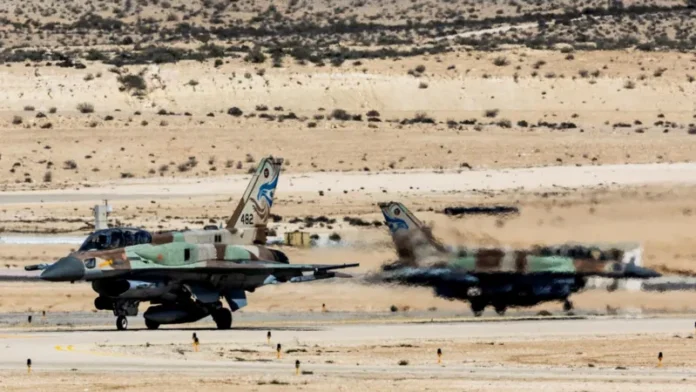The Israeli military launched airstrikes on weapons depots belonging to the Syrian government in southern Syria on Tuesday, hours after two projectiles were fired from Syrian territory into the Israeli-occupied Golan Heights. The escalation has further heightened tensions in the volatile region.
According to the Syrian foreign ministry, the Israeli strikes caused “significant human and material losses” in the Deraa province. The ministry condemned the attacks as a violation of Syrian sovereignty and accused Israel of aggravating the already fragile situation in the region.
Israeli Defence Minister Israel Katz held interim Syrian President Ahmed al-Sharaa responsible for the projectile launches. He said the two projectiles landed in open areas in the southern Golan Heights without causing casualties but emphasized that Israel “will not allow a return to the reality of 7 October,” a reference to the deadly Hamas attack on Israel in 2023 that sparked the Gaza conflict.
A previously little-known group calling itself the Martyr Mohammed Deif Brigades — named after the late Hamas military chief — claimed responsibility for firing the two rockets. The group released a video on Telegram purportedly showing the moment the projectiles landed. However, independent verification of the claim remains unavailable.
Israeli media reported that these rocket launches are the first from Syrian soil since rebels overthrew Bashar al-Assad’s regime last December, ending more than 13 years of civil war.
This recent upheaval has led to shifts in control over parts of southern Syria, where various Islamist groups, including Hayat Tahrir al-Sham (HTS), now operate. Israel regards HTS, a former al-Qaeda affiliate, as a significant threat and has demanded the full demilitarization of three southern Syrian provinces.
The Syrian Observatory for Human Rights, a UK-based monitoring group, reported “violent explosions” in southern Syria, notably in the town of Quneitra and the Deraa region, following the Israeli aerial strikes.
Syria’s foreign ministry dismissed reports of rocket launches from its territory as unverified and accused “several parties” of attempting to destabilize the region to advance their own interests. The ministry reiterated that Syria “has never been and will never be a threat to anyone in the region.”
This incident follows a series of Israeli strikes on Syrian military infrastructure since the Assad regime’s fall in December. Israel has also deployed troops into the United Nations-monitored demilitarized buffer zone along the Golan Heights, which Israel captured from Syria during the 1967 Middle East war and later annexed — a move not internationally recognized.
Last month, Israel struck an area near Syria’s presidential palace in Damascus, which Israeli Prime Minister Benjamin Netanyahu described as sending a “clear message” against any military buildup south of the capital or threats to the Druze community. The UN Secretary-General Antonio Guterres condemned that attack as a “violation of Syria’s sovereignty.”
Two weeks after the Damascus strike, US President Donald Trump announced plans to lift decade-old sanctions imposed on Syria in response to human rights abuses during the civil war, a conflict that claimed over 600,000 lives and displaced 12 million people.
As Israel continues to monitor developments in southern Syria, the risk of further escalations remains high in a region still reeling from years of war and political instability.

